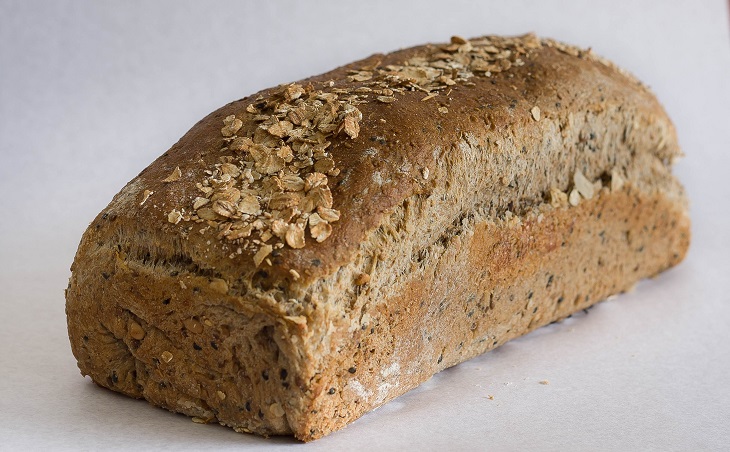Dietary fiber is an important part of overall health. It refers to the parts of plant foods that the body isn’t able to digest or absorb, which are passed through the body relatively intact. Fiber goes through the stomach, the small intestine, and the colon before it is passed out of the body, and on its journey, it doesn’t break down the same way that other nutrients like fats, proteins, and carbohydrates do.
There are two types of dietary fiber: soluble and insoluble. Soluble fiber dissolves in water and turns into a gel-like substance. It is typically found in foods such as oats, peas, apples, citrus fruits, carrots, barley, and psyllium. Insoluble fiber doesn’t dissolve in water and is designed to help other material move through the digestive tract. It is found in foods like whole-wheat flour, nuts, cauliflower, green beans, and potatoes. But why is dietary fiber so important, exactly? Read on to find out why dietary fiber is essential to fat loss and overall health.
Why is dietary fiber important for the body?
There are many health benefits of getting enough fiber in your diet. Fiber can act as “nature’s scrubbing brush” in the sense that it helps the body to clean out any waste that may be stuck within the digestive tract, smoothing everything along.

Some specific health benefits of having dietary fiber in the body include:
Maintaining bowel health
By increasing the amount of fiber in the diet, you can effectively help to lower the risk of developing certain health conditions such as hemorrhoids and diverticular disease. Fiber may also lower the risk of developing colorectal cancer. Since it acts as a bulking agent, it can help to increase the size and weight of the stool so that it passes more easily through your body.
Can help to lower cholesterol
Soluble fiber is a particularly helpful aid when it comes to your cholesterol. The type that is found in beans and oat bran can help to lower levels of lipoprotein – a type of bad cholesterol. As well as lowering cholesterol levels, fiber can also help with heart health, and studies have also shown that it can help reduce blood pressure and inflammation.
Can help to control blood sugar
Eating enough dietary fiber has been shown to help the body digest other foods more slowly, which can decrease the absorption rate of sugar. In people with diabetes, this is especially important because it can help maintain proper blood sugar levels. Studies have also shown that it may reduce the risk of developing type 2 diabetes.
What happens if you don’t eat enough dietary fiber?
The health benefits of dietary fiber are clear, but not getting enough fiber can also be detrimental to overall health. Certain health repercussions can happen if your diet is lacking in fiber. They include:
Constant bloating
Since fiber is great for digestion and helps move things along, without enough of it in the system, the digestive tract will suffer. Certain foods that cause bloating and gas can include alcohol and processed foods. If you eat too much of these and don’t get enough fiber, you may deal with a constant bloated feeling.
Irregular bowel movements
Having a healthy bowel routine is important, and not getting enough fiber will significantly decrease the chances of this. If your system lacks fiber, your body will be unable to eliminate stools in the way that it should.
Blood sugar spikes or drops
Since fiber helps to regulate blood sugar, a lack of it can lead to unhealthy spikes or drops.
Low energy and foggy brain
Having too little fiber in the diet can lead to fatigue, because the balancing act that fiber contributes to becomes out of whack with other nutrients you’re consuming. Fiber also helps the body feel full, and if there isn’t enough of it, you may start to crave sweet foods to help you feel more full after eating. This high intake of sweets affects blood sugar, which in turn leads to a lowered ability to concentrate and think clearly.

Does fiber help with fat loss?
Fiber has been shown to help aid in fat loss; however, soluble fiber is the one you’ll want to get more of if you’re looking to shed a few pounds. It helps with this in a few ways. The first is by aiding your gut bacteria. Fiber helps to feed the trillions of bacteria within your gut that are designed to keep your digestion on track. Certain species of these bacteria help to play roles in weight management. When they are fed properly with soluble fiber, they can contribute to a healthy weight.
Fiber can also act as an appetite regulator, meaning that it can help to decrease cravings or overeating by helping the body feel satiated for longer. Studies have shown that viscous fiber specifically is good for helping to reduce cravings and increase feelings of fullness, which will lead to weight loss over time. Pectins, psyllium, guar gum, and glucomannan all contain viscous fiber.
Studies have also suggested that the fat loss that is most common in those who increase their fiber intake is belly fat. This type of fat is often the most dangerous kind, as it can lead to the onset of disease and a heightened risk for developing chronic illness.
Eating more high-fiber foods can help to reduce overall weight. However, there are so many more health benefits than just fat loss. Upping your fiber intake will help to keep your digestive tract running smoothly and lead to an overall healthier you.
Featured image by Melissa Di Rocco on Unsplash